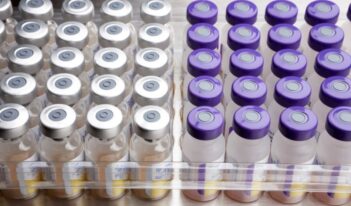
Advocacy groups join Rep. Markey in calling for reform of FDA review process.
In a recently released report, Representative Edward J. Markey (D-MA) characterizes the Food and Drug Administration’s (FDA) process to approve certain medical devices as a “dangerous loophole” that allows for the approval of unsafe products. Markey claims that his proposed legislation, the Safety Of Untested and New Devices Act (SOUND) Act, would remedy the problems detailed in his report.
The report describes the Premarket Notification or “510(k)” process for FDA review of medical devices, which allows manufacturers to bypass the more extensive Premarket Approval (PMA) process that requires proof of safety and efficacy.
The 510(k) process requires the FDA to approve a device for marketing if it is shown to be “substantially equivalent to” and with the “same intended use” as a previously approved device, called a “predicate” device. The FDA is not authorized to deny a 510(k) application on the basis of safety concerns about the predicate device, even if the predicate device was voluntarily recalled due to health risks.
Markey’s report gives examples of three medical devices – surgical mesh, an endoscopic clip, and a cardiovascular catheter – that were approved through the 510(k) process based on predicates that had been recalled due to serious defects. According to the report, the new devices have been associated with numerous adverse events, with the clips and catheter themselves having been recalled.
The report comes on the heels of a Consumer Reports magazine article about “dangerous medical devices.” Consumers Union, which publishes Consumer Reports, recently joined with other consumer and patient advocacy groups to endorse the SOUND Act, which would give the FDA the option to deny 510(k) applications that are based on predicates with known safety risks.
While not endorsing SOUND expressly, Jeffrey Shuren, Director of the FDA’s Center for Devices and Radiological Health, recently said the agency would support legislation to improve the 510(k) process, adding that catching safety problems before devices are approved benefits both patients and manufacturers.
An FDA-commissioned Institute of Medicine report recently recommended regulation to replace the 510(k) process with one that focuses on safety and effectiveness, treating medical devices based on predicates much as the agency treats as any other new device or drug. It does not appear that the Institute’s recommendation is currently being pursued by the agency or Congress.



